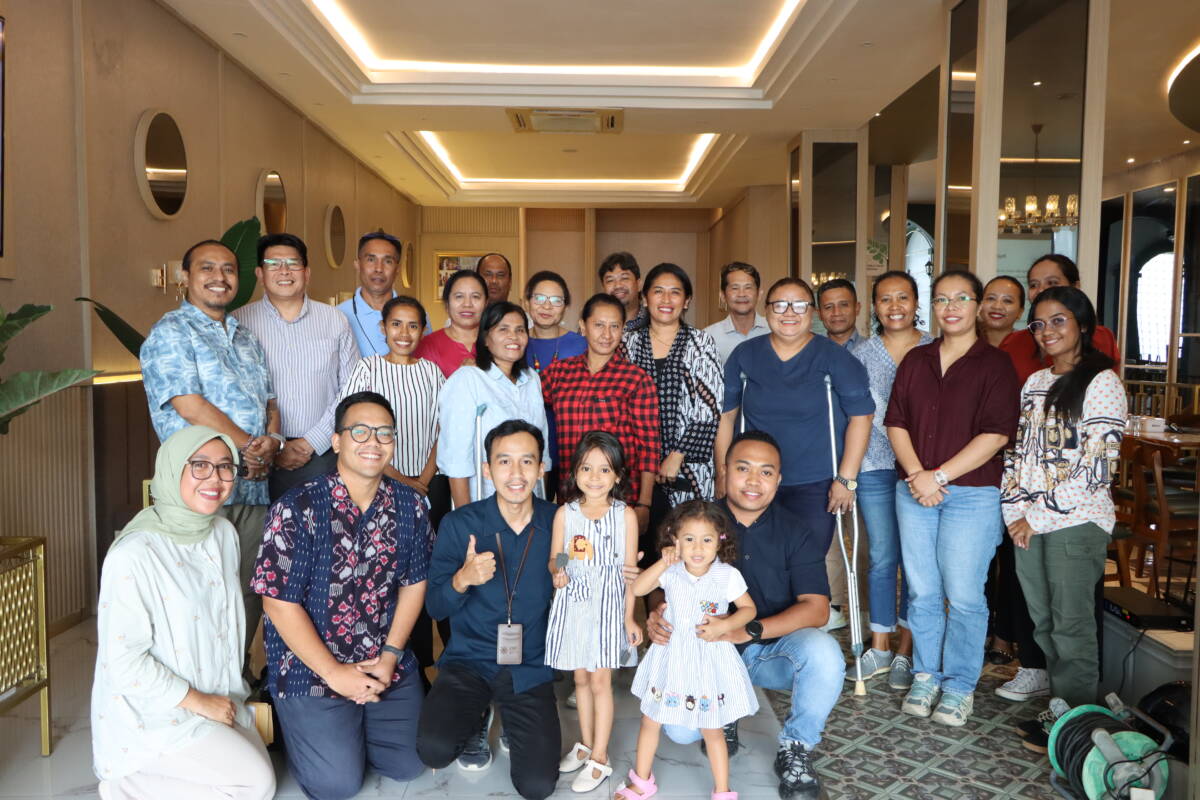Kupang, 5 May 2025 – East Nusa Tenggara (NTT) is one of the regions in Indonesia with significant potential for developing renewable energy, such as solar, micro-hydro, and biomass energy. NTT possesses high renewable energy potential. Preliminary analysis from the Institute for Essential Services Reform (IESR) shows solar energy potential of 338.59 GWp, mini and micro-hydro potential of 693.1 MW, wind potential of 29.587 MW, and biomass potential of 138.9 MW. This potential makes NTT a strategic region supporting the national target toward achieving Net-Zero Emissions (NZE) by 2050. However, utilizing renewable energy in NTT still faces various challenges, both from technical, social, and institutional perspectives.
To encourage the maximum and structured use of renewable energy, IESR visited Kupang, NTT, to begin developing the NTT NZE 2050 Roadmap. This process involves close collaboration between local governments, the private sector, civil society organizations (CSOs), and local communities to build a sustainable economy based on clean energy.
IESR Executive Director Fabby Tumiwa emphasized the importance of a participatory approach in designing the roadmap. During a meeting with several civil society organizations and representatives from higher education institutions on the first day of the visit, Fabby stated that the success of the energy transition in NTT depends on a deep understanding of local challenges.
“Our vision (IESR, ed.) is to create a just transformation through an energy transition that can bring tangible benefits to the people of East Nusa Tenggara. We hope that with the comprehensive information from today’s discussions, we can design better strategies to carry out the right interventions,” said Fabby at the Networking and Discussion event with CSOs and Higher Education Institutions in NTT on Monday, May 5, 2025.
Welhelmus Poek, Regional Support Staff for Community and Government Engagement, the Indonesian Low Carbon Energy Transition Program (MENTARI), emphasized that the approach to developing the energy transition roadmap in East Nusa Tenggara (NTT) needs to be adapted to the characteristics of the local community. He explained that the people in NTT have diverse characteristics between coastal communities and those living in the highlands. Therefore, different strategies must be used to ensure the effectiveness of the roadmap’s implementation.
On the other hand, Ningsih Lema, Regional Secretary of the Indonesian Women’s Coalition for East Nusa Tenggara, highlighted the importance of mainstreaming gender issues in the energy transition. This means that women’s involvement in the design of the NTT Roadmap towards NZE 2050 needs to be included.
“Therefore, it is necessary to ensure that women’s groups understand how they can face the climate crisis and how women can participate in renewable energy efforts. Gender issues must be integrated into the NTT NZE 2050 roadmap design,” said Ningsih.
Meanwhile, NTT’s geographical aspect, consisting of islands with limited infrastructure, presents its challenge. Dina Soro, Advocacy and Campaign Manager of the Pikul Foundation, emphasized the importance of developing adaptive logistics and financing schemes. For example, utilizing cooperatives and local financial institutions to ensure the operational sustainability of renewable energy technologies such as Solar Power Plants (PLTS).

